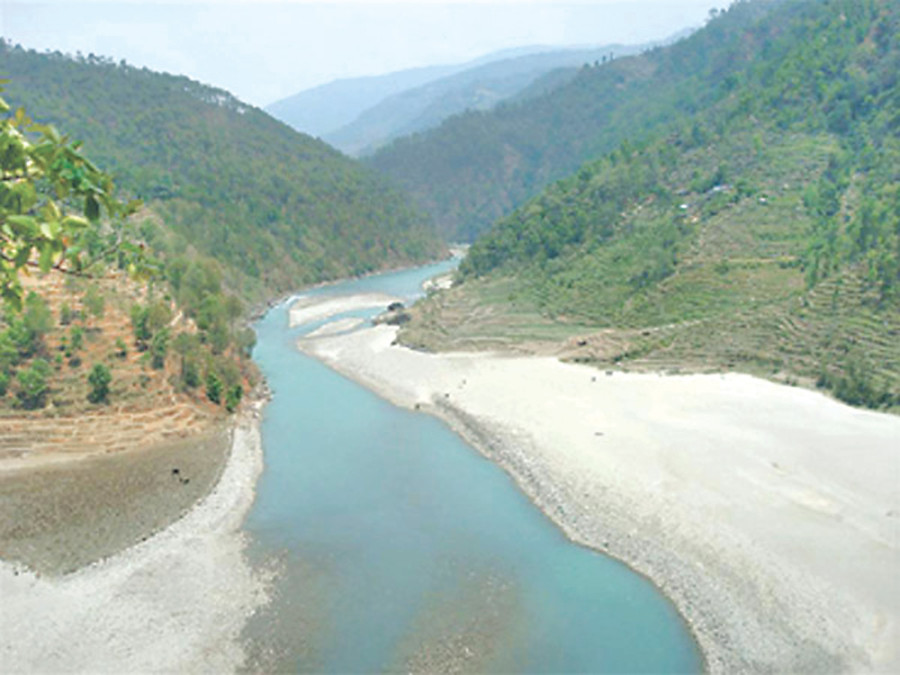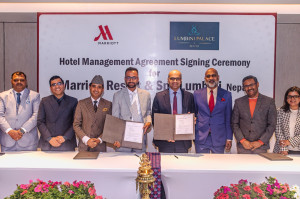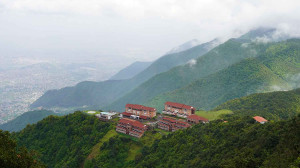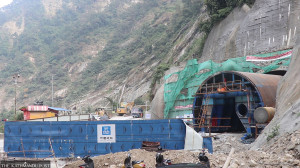Money
Land acquisition process to complete in 6 months
The long-planned Upper Karnali Hydropower Project has moved a step ahead as locals who will be displaced by the power plant and the project’s developer have agreed to complete the land acquisition process within six months.
Bibek Subedi
The long-planned Upper Karnali Hydropower Project has moved a step ahead as locals who will be displaced by the power plant and the project’s developer have agreed to complete the land acquisition process within six months.
A meeting held on Monday between residents and GMR Upper Karnali Hydropower, the company that will be building the 900 MW project, ended on a positive note. Locals agreed to lower their land compensation claim significantly and the company also increased its offer slightly to reduce the gap between the two figures.
Locals agreed to accept Rs1 million per ropani, a sharp drop from their earlier demand for Rs1.5 million. “However, the company representatives who attended the meeting said they were not authorized to make a deal,” said Bam Bahadur BC, a local leader involved in the negotiations. “Instead, they offered Rs760,000 per ropani, a slight increment from the Rs750,000 they had offered earlier.”
The two parties have decided to organize the next meeting very soon and also invite representatives from Investment Board Nepal (IBN) and company officials who have the authority to make decisions. “We have agreed to hold another round of talks and sign the agreement within a month,” said BC. “Also, we have agreed to complete the land acquisition process within six months.”
Apart from the amount of the compensation payment for the land that will be acquired by the project, locals have agreed to the resettlement action plan proposed by the developer.
Land acquisition has been one of the major headaches for developers of hydropower projects as they have to complete the land acquisition before the financial closure.
In September 2014, the government and GMR India signed a project development agreement (PDA) for the construction of the project with the stipulation that the financial closure had to be completed by September 2016.
A couple of months ago, a project appraisal team of the Asian Development Bank (ADB), International Finance Corporation (IFC), International Bank for Reconstruction and Development (IBRD), Commonwealth Development Corporation (CDC), DEG, a subsidiary of the German Development Bank, Japan International Cooperation Agency (JICA) and OPEC Fund for International Development (OFID) held a tripartite meeting with IBN and GMR in Kathmandu.
Multiple sources have confirmed that the lenders have pledged a loan of more than $1 billion to finance the project. “If the land acquisition process is completed within a few months, it will not take much time for the construction of the project,” said an IBN source.
The project area is spread over three districts—Surkhet, Dailekh and Achham in western Nepal. The developer will give 27 percent of the shares to the government and the country will also receive 12 percent (108 MW) of the total energy produced for free.
Similarly, the project is expected to provide jobs to more than 2,000 people and the government is projected to earn Rs300 billion in financial benefits. The project will be acquiring 48.85 hectares of private land and 207.75 hectares of government-owned land. It will affect an estimated 239 households.




 17.12°C Kathmandu
17.12°C Kathmandu















